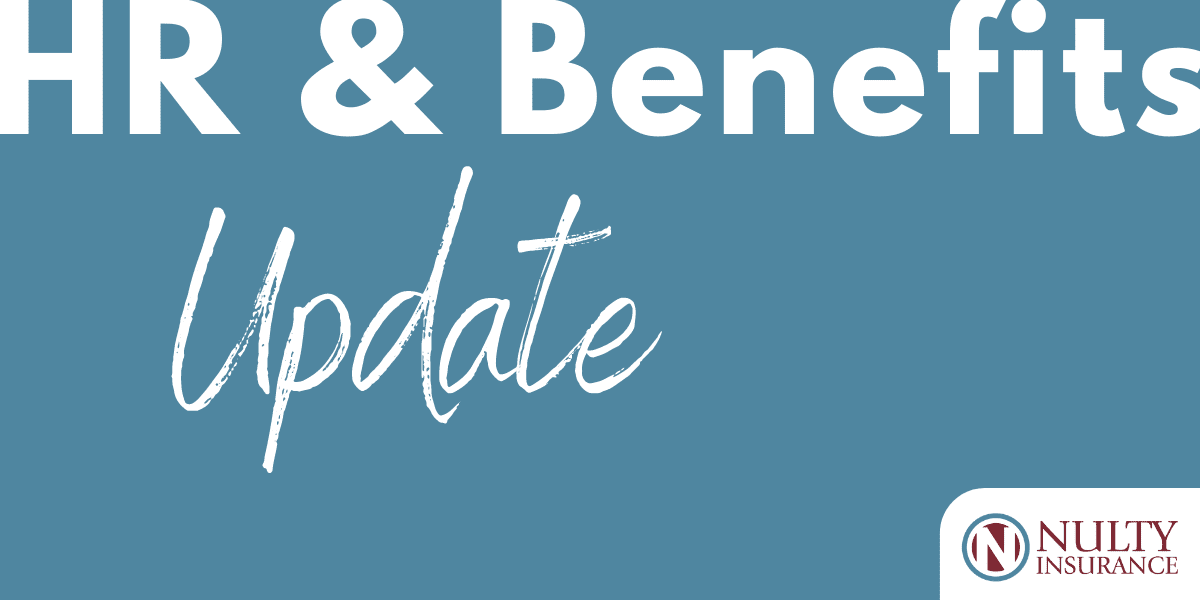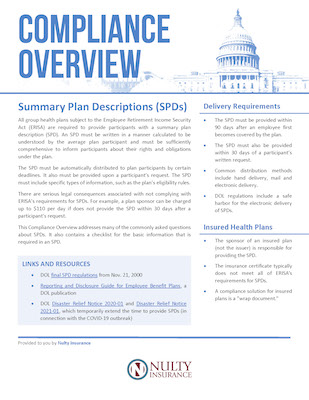
🗓️ April Updates
Keeping HR pros up to date with important compliance updates and human resource articles.
Telehealth Coverage for HDHPs Extended
A spending bill signed into law on March 15, 2022, extends the ability of HDHPs to provide benefits for telehealth or other remote care services before plan deductibles have been met without jeopardizing HSA eligibility. This extension applies to any telehealth services from April 2022 through the end of the year. Under the extension, HDHPs may choose to waive the deductible for any telehealth services from April 2022 through 2022 without causing participants to lose HSA eligibility. This provision is optional; HDHPs can continue to choose to apply any telehealth services toward the deductible. Note that telemedicine services provided between Jan. 1, 2022, and April 1, 2022, must still be counted toward the HDHP deductible to avoid impacting the participants’ eligibility for HSA contributions.
DOL to Hire 100 Investigators, Signaling Protentional Enforcement Increase
The DOL recently announced an initiative to add 100 investigators to its Wage and Hour Division – a potential sign to employers that increased enforcement may be on the horizon. According to the DOL, the core enforcement obligations of these investigators include:
- Conducting investigations to determine if employers are paying workers and affording them their rights as the law requires
- Helping ensure that law-abiding employers are not undercut by employers who violate the law
- Promoting compliance through outreach and public education initiatives
- Supporting efforts to combat worker retaliation and worker misclassification as independent contractors
Employers should be sure to review their workplace policies and procedures to ensure compliance with all applicable workplace laws and regulations. Common violations include worker misclassification, unpaid overtime, tip theft, insufficient break periods and failure to provide protected leave.
Proposed Overtime Rule Expected Soon
With the publication of a proposed overtime rule expected as soon as this month, attorneys are anticipating that the DOL will recommend higher salary level thresholds for the white-collar exemptions to the rule. If so, more people will be eligible for overtime pay.
Attorneys further indicate that employers should expect a proposed salary amount that at least approximates the amount proposed in 2016, which was ultimately blocked 1-day before it would have been implemented. I think we all remember that debacle! The proposed minimum salary level for the FLSA’s executive, administrative, and professional exemptions thus could be $913 per week or $47,476 per year, if not more. In 2019, the Trump administration implemented new salary levels of $684 per week, but the Biden administration may be looking to make bigger changes.
Summary Plan Description (SPD) – What Employers Need to Know
The DOL enforces ERISA, which requires plan administrators (employer) to provide plan participants (employees) with SPDs. All qualified plans covered under ERISA (Health, Life, Disability & Long-term Care) must provide participants with SPDs. The SPD must include “the most important facts they need to know about their health benefit plans including plan rules, financial information and documents on the operation and management of the plan. An SPD must include specific information such as eligibility to participate in the plan, how a participant may access services, how benefits are calculated or provided, and how to file a claim for benefits. It must also include plan administrator contact information as well as guidance on how to request more information. SPDs must be provided in writing in plain language and must be free of charge.
If a plan is changed, participants must be informed, either through a revised SPD, or in a separate document, called a Summary of Material Modification (SMM), which also must be given to participants free of charge. If there have not been material modifications to the plan, then the SPD must be updated at least every 10-years – five years for plans that had material modifications.
Under the ACA, notice of material modifications to a plan must be provided to participants at least 60-days in-advance of the effective date of change. SPDs can be distributed electronically and if so, it is recommended that the plan administrator has a mechanism to ensure that the SPD is actually received by the participant. The administrator should also use the same document, not documents that vary based on the recipient’s computer system, and ultimately make paper SPD’s available to participants who need or want them.
Employers often outsource responsibility for the SPD to a third party plan administrator, but where the employer is the plan administrator, great care should be devoted to the development of the SPD. Attorneys can help with this task, along with your friends at Nulty. 😊



